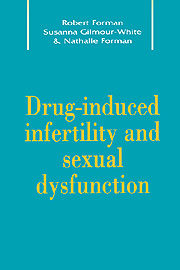2 - Antihypertensive therapy
Published online by Cambridge University Press: 30 March 2010
Summary
Hypertension is one of the most frequent reasons for medical consultations in the developed world. In the USA alone, 35 million people are affected and 2 million die from hypertension and hypertensive-related illnesses each year. Hypertension is frequently asymptomatic and is usually detected only by screening.
Compliance with antihypertensive medication
Difficulty can be experienced in persuading patients of the need for drug therapy particularly as they are often asymptomatic. Compliance with therapy is frequently poor especially when side effects occur. Trials performed to assess this show that between 8 and 35% of all treated patients discontinue therapy because of adverse effects. Although a few patients withdraw for serious side effects, such as bradycardia, the majority stop treatment for symptoms interfering with the quality of life. Patients may willingly report socially acceptable side effects such as nausea, lethargy or headaches, but there is increasing evidence that they may not volunteer information about sexual dysfunction. It has been known for many years that certain drugs may provoke sexual dysfunction, but many medical practitioners are unaware of the number of therapeutic classes of antihypertensive drug that have been reported to modify sexual function and behaviour. It is also important during the monitoring of antihypertensive therapy that prescribers directly question men and women on whether they are experiencing sexual problems.
Gender differences
There is certainly a gender difference in reports of sexual dysfunction related to antihypertensive therapy. For example, in the Hypertension Detection and Follow-up Programme in the USA, 8.3% of men but only 0.4% of women stopped their antihypertensive drug because of sexual side effects (Curb et al, 1985).
- Type
- Chapter
- Information
- Drug-Induced Infertility and Sexual Dysfunction , pp. 15 - 28Publisher: Cambridge University PressPrint publication year: 1996



